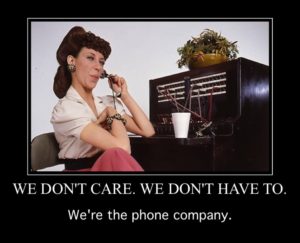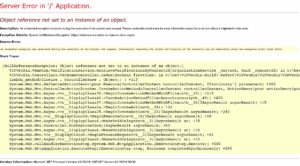For anyone following this blog, you know there hasn’t been a post in a while, and I apologize for that. Our family welcomed its fourth member this September, and, silly me, I thought I could keep the blog going with two kids under two in addition to a busy law practice. But I’m back, and expect to see weekly updates as usual!
Here are two big ticket items I flagged in my absence. Both of these may affect you as a veteran small business owner, especially if you hold a schedule contract with the VA:
Are You Still An “SDVOSB?”
If you are a service-disabled veteran-owned small business (“SDVOSB”) competing in the federal marketplace, you have self-certified in Sam.gov as an SDVOSB, and you may have also undergone the VA’s official certification (“verification”) process to be included in its VetBiz registry. (The former certification renders you eligible for SDVOSB set-aside work for all agencies but the VA, and the latter certification renders you eligible for SDVOSB set-aside work for the VA). For years, the VA and the SBA have been collaborating on establishing a uniform set of rules applicable to both programs, and this finally went into effect as of October 1. Also, the VA has implemented regulations amending its process for verifying firms, providing for appellate review of its verification decisions, and adopting the SBA’s new rules on eligibility.
Here’s the rub for firms already taking advantage of SDVOSB status, particularly those in the VetBiz registry: the rules have changed. It is possible for a firm to be verified, but for a rule change to put that verification status in jeopardy (i.e., new eligibility specifications may require tweaks to the business in order to protect SDVOSB status). It is also possible that these rule changes positively affect SDVOSBs, such as by allowing flexibilities that did not exist before. (For instance, the rule changes allow for “first right of refusal” in transfer provisions across the board, when this was previously only permitted by the VA’s regulations). These changes can be taken advantage of by amending corporate documents, if one so desires.
Take a look at these eligibility changes. Do they affect you?
Huge Win for VOSBs is Also Huge Defeat
I have covered the Kingdomware decision and its implications in at least four blogs, so I’m not going to beat a dead horse by going over it yet again. In short, in 2016 the Supreme Court affirmed that the VA must set aside FSS contracts for VOSBs/SDVOSBs when certain conditions are met. Recently, however, a federal judge criticized the Kingdomware mandate, hinting that Congress can (and should) correct the law due to the strain it places on the VA.
In Electa-Med Corp. v. U.S., COFC No. 18-927C (2018), a contractor protested the VA’s choice to outsource the selection of certain medical supplies to prime vendors participating in the Medical-Surgical Prime Vendor Next Generation (“MSPV”), requesting an injunction to stop the VA from doing so. In response, the VA cited difficulty in finding items necessary to support its healthcare network while also complying with Kingdomware.
In his opinion, Judge Bruggink of the CoFC ruled that under the law, the veteran plaintiffs were right on the merits. Not only had the VA violated the Kingdomware mandate, but also the Competition in Contracting Act (due to its failure to follow required procedures in issuing a Class Justification and Approval). However, Judge Bruggink declined to enter an injunction to prohibit the VA from its chosen practice, citing the public interest in ensuring high quality healthcare to veterans. He also stated:
The bevy of protests filed in this court and at the GAO since the Supreme Court’s decision in Kingdomware are evidence enough that these requirements are strict and difficult to follow in the mean and no doubt doubly so when the law requires that they be applied without fail or exception. And yet the law remains. Only Congress has the kill switch.
This case is a huge blow because although the veteran plaintiffs won, they lost in a big way: even though Kingdomware was not followed, no corrective action was mandated because the court did not want to stand in the way of the VA’s ability to provide quality healthcare to veterans. While obviously there is a strong public interest in this concern, the issue this presents is that in the future, the VA may violate Kingdomware, and by the time the case/protest is decided, the court or GAO may decline to intervene due to similar public interest reasons. In other words, the protestor will win on the merits, but get nothing from it.
Since the Kindomware ruling in 2016, the VA has cited difficulty in complying with its mandate: having to resolicit contracts for failure to find two responsible SDVOSB offerors, the strain of performing market research to determine who will bid, and issues in implementing processes to comply (such as tiered evaluation). Meanwhile, the VOSB community continues to fight to hold the VA to the law.
After a Supreme Court victory, you would think the VOSB community would have the chance to rest. Who knew the battle was just beginning?
That’s it for now! See you next week!
*Did you find this article informative? If so, sign up for Sarah Schauerte’s weekly blog for veteran business owners at: https://legalmeetspractical.com. Remember to click the link sent to your email to activate your subscription!









